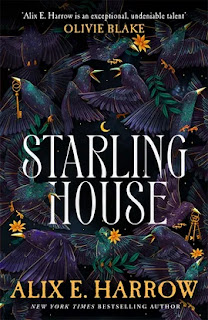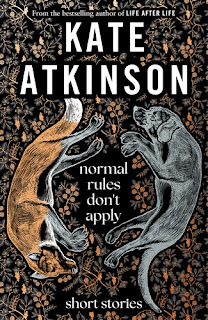Yule Island (Lidingö Mysteries, No1)
Johana Gustawsson (translated by David Warriner)
Orenda Books, 23 November 2023
Available as: HB, 256, PB, audio, e
Source: Advance copy and purchased
ISBN(HB): 9781914585975
Johana Gustawsson (translated by David Warriner)
Orenda Books, 23 November 2023
Available as: HB, 256, PB, audio, e
Source: Advance copy and purchased
ISBN(HB): 9781914585975
I'm grateful to Orenda Books for sending me a copy of Yule Island to consider for review, and to Anne Cater for inviting me to join the book's blogtour.
Having enjoyed Gustawsson's previous Orenda-published mysteries, I was delighted to see this one coming and eager to review it. It is, I think, in atmosphere, closer to Blood Song than to her Roy & Castells series (though I did note that these books all take place in the same world - look out for the reference to the forensics expert!) That is, Yule Island is quite a "shut in", Gothic experience to read as we follow art and antiques expert Emma Lindahl to the lonely, but hardly isolated, Swedish island of Storholmen to appraise a wealthy family's hoarded collection of artwork.
Storholmen isn't remote - it can be reached by water taxi, a trip of only a few minutes, but once you're there it's another world. It is a place dominated by the Gussman family with their allegedly haunted manor house, where a young was woman was found, dead and hanging naked from a tree, nine years before. Once the taxi ceases, you're trapped, unless you can beg a lift. Moreover, its winter - the cold and the darkness almost palpable in Gustawsson's writing, contrasted to the busy urban scene outside Emma's apartment.
With this story, Gustawsson plunges straight into the mystery. There's no messing around, instead the threads are brought quickly together. Creepy Manor House. Troubled and scary history. The frustrated cop who failed to solve the previous murder. Hints of something or someone in the house not at rest. And in the middle of it all, Emma, a more complex character than she appears at first sight. When another corpse is found, she meets Karl, that detective (I enjoyed the subplot featuring him, his boss and her dog) and begins doing a little sleuthing herself.
It's clear by this stage that Emma has some preoccupation with the island, beyond furthering her career by working through the valuables the Gussmans have accumulated. (To add to the creepiness this is a job she's required to do according to a strict schedule, apparently designed to prevent her meeting any of the family or their staff). Gustawsson takes her time, however, revealing Emma's background and why she wishes to undertake the work when she seems to dread, rather than desire, the task, feelings only heightened when she discovers a note begging for help.
Pushed beyond endurance by what she witnesses, Emma also encounters Anneli, the young woman who runs the island cafe (literally the only other place to go apart from the manor) and they form a sort of alliance (in more senses than one). I felt the relationship between the two women was tenderly and convincingly drawn, as were Emma's difficulties with her mother (which hint at some of the darkness that Emma's dealing with - this is only slowly revealed and I won't say more because in this book you need to learn things at Guistawssson's pace).
Also sharing space in this book with Emma and the rest is Viktoria, who has her own take on things to narrate: exactly how it fits with the other storylines also only becomes clear gradually - but I will say that Viktoria's story is one that has overtones of male abuse (readers may want to be aware of this).
Overall, Yule Island has plenty of different mysteries, but they come together nicely into a coherent whole, rather than being separate threads added in to spice the story up. Once things come to a head it is soon clear what has shaped - is still shaping - the horror on Storholmen - Yule Island - and it also becomes clear that not everything can be wrapped up neatly: there will be consequences to what's gone on here - for the innocent as well as the guilty.
An intriguing and moreish start to a series, ably translated by David Warriner, whose lucid English narrative allows the story to speak for itself.
For more information about Yule Island, see the publisher's website here - and of course the other stops on the blogtour which you can see listed on the poster below.
You can buy Yule Island from your local high street bookshop or online from Bookshop UK, Hive Books, Blackwell's, Foyle's, WH Smith, Waterstones or Amazon.
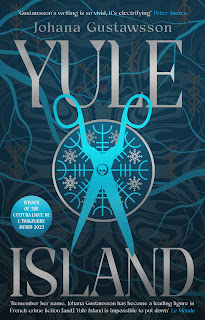


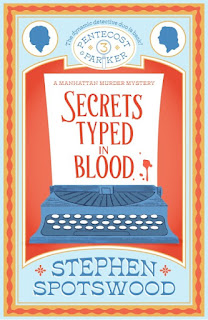
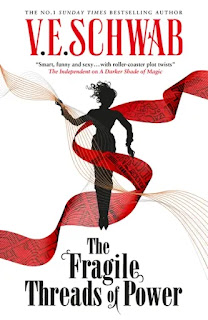
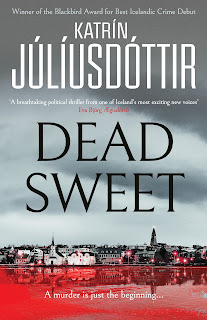

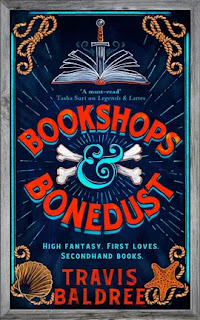





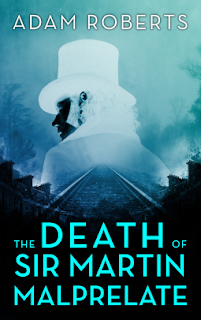



-1.jpg)
